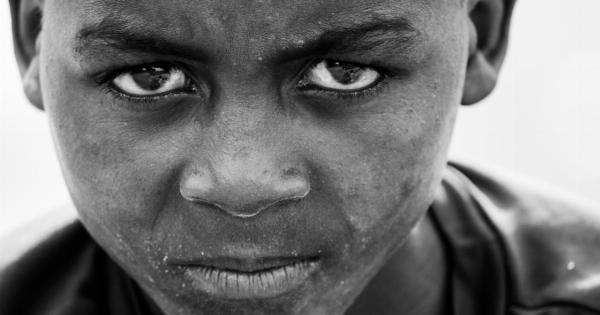Meningitis is a potentially life-threatening disease that affects the brain and spinal cord. It can result in severe complications, such as hearing loss, learning disabilities, and even death.
However, through timely vaccination, meningitis can be prevented. World Meningitis Day, observed on April 24th each year, aims to raise awareness about this disease and the importance of vaccination in preventing its spread.
What is Meningitis?
Meningitis is an inflammation of the protective membranes, called meninges, that surround the brain and spinal cord. It can be caused by both viral and bacterial infections.
Bacterial meningitis is the more severe form and can lead to serious complications if left untreated. It spreads through respiratory droplets and close contact with infected individuals.
Types of Meningitis
There are several types of meningitis, including:.
1. Viral Meningitis
Viral meningitis is the most common form and is usually less severe than bacterial meningitis. It is caused by various viruses, such as enteroviruses, herpes simplex virus, and others.
Most cases of viral meningitis tend to be mild, and individuals recover without any specific treatment.
2. Bacterial Meningitis
Bacterial meningitis is a medical emergency and requires immediate treatment. It can be caused by several bacteria, including Neisseria meningitidis, Streptococcus pneumoniae, and Haemophilus influenzae.
Bacterial meningitis can result in serious complications, such as brain damage, hearing loss, and even death.
3. Fungal Meningitis
Fungal meningitis is rare and usually occurs in individuals with weakened immune systems. It is caused by fungal infections and can be life-threatening if not promptly treated.
4. Parasitic Meningitis
Parasitic meningitis is a rare form of the disease caused by parasites. It can be acquired through exposure to contaminated water, soil, or specific animals.
Prevention Through Vaccination
Vaccination is a crucial tool in preventing meningitis. Various vaccines are available to protect against different types of meningitis:.
1. Meningococcal Vaccine
The meningococcal vaccine helps protect against Neisseria meningitidis, the most common cause of bacterial meningitis.
It is recommended for individuals who are at increased risk of contracting the disease, such as college students living in dormitories, military recruits, and travelers to areas where meningococcal disease is prevalent.
2. Pneumococcal Vaccine
The pneumococcal vaccine prevents infection caused by Streptococcus pneumoniae, a bacterium that can cause meningitis, as well as pneumonia and ear infections.
It is recommended for infants, young children, adults over 65 years, and individuals with certain medical conditions.
3. Hib Vaccine
The Hib vaccine protects against Haemophilus influenzae type b, a bacterium that can cause meningitis, pneumonia, and other serious infections. It is part of routine childhood immunization schedules.
4. Measles, Mumps, and Rubella (MMR) Vaccine
The MMR vaccine not only protects against measles, mumps, and rubella but also against complications like meningitis. It is administered to children in two doses.
5. Varicella (Chickenpox) Vaccine
The varicella vaccine protects against the varicella-zoster virus, which causes chickenpox. This virus can also lead to complications like meningitis.
Signs and Symptoms of Meningitis
Recognizing the signs and symptoms of meningitis is crucial for early diagnosis and treatment. Common symptoms include:.
1. Fever and Headache
High fever and severe headaches are often the first signs of meningitis.
2. Stiff Neck
A stiff neck is another prevalent symptom. Individuals may find it difficult to touch their chin to their chest due to neck stiffness.
3. Nausea and Vomiting
Nausea and vomiting are common symptoms of meningitis, often observed alongside fever and headache.
4. Photophobia
Photophobia, or sensitivity to light, is another indicator of meningitis. Individuals may experience discomfort or pain in bright environments.
5. Skin Rash
In some cases of meningococcal meningitis, individuals may develop a distinctive skin rash. The rash typically consists of small red or purple spots and does not fade when pressure is applied to the skin.
Seek Immediate Medical Attention
If you or someone you know experiences any of these symptoms, especially in combination, it is important to seek immediate medical attention. Meningitis can progress rapidly, and early treatment is vital in preventing severe complications.
Conclusion
Meningitis is a serious disease that can have long-term effects and even be fatal. Through vaccination, we can effectively prevent the spread of meningitis and protect ourselves and our loved ones.
On World Meningitis Day, let us raise awareness about the importance of vaccination in preventing this devastating disease.




























